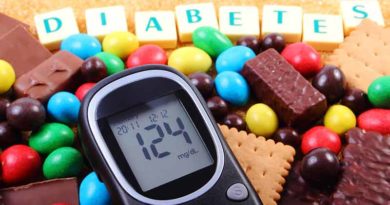Low carb diets & birth defects
A study was published in the journal “Birth Defects Research” on 25th January 2018 (Ref 1). A press release accompanied it (Ref 2) claiming that “women with low carbohydrate intake are 30 percent more likely to have babies with neural tube defects, when compared with women who do not restrict their carbohydrate intake.” Newspapers worldwide reported the story (Ref 3), reiterating the scary headline that “Women on low carb diets may be at 30 percent greater risk of having a baby with a spinal and neurological birth defect, according to a new study.”
One of my lovely subscribers, Belinda Fettke, alerted me to the article and asked me to take a look at it as my weekly newsletter. So I did. It was a case control study. It was fundamentally flawed in a number of ways:
1) The characteristics table compared the control with the control, not the control with the cases.
2) The ‘correct’ characteristics table was available, as a Supplemental, but neither table included important data related to the study – not least carbohydrate and folate/folic acid intake.
3) Consequently the study did not adjust for material differences between the control and case groups.
4) The study could not make the conclusion that it did.
I sent the email below to the authors on 30th January and sent a copy to the journal editor. I was minded to wait until I received a reply before posting this openly, but I have been asked to post this by a number of people who know that I found retraction-level errors because the headlines generated by this article need to be countered immediately. Pregnancy is worrying enough for women and men without fabrications like this trying to scare the life out of them.
Dear Dr Desrosiers,
I am currently reviewing your very interesting paper “Low carbohydrate diets may increase risk of neural tube defects.”
The article abstract reported “To assess the association between carbohydrate intake and NTDs [Neural tube defects], we analyzed data from the National Birth Defects Prevention Study from 1,740 mothers of infants, stillbirths, and terminations with anencephaly or spina bifida (cases), and 9,545 mothers of live born infants without a birth defect (controls) conceived between 1998 and 2011.” The article reported that these numbers became 1,559 (cases) and 9,543 (controls) with valid exclusions. That’s fine.
Table 1 reported the characteristics of the control group only. Table 1 should show the differences between the cases and the controls, not least so that it is known what to adjust for. Supplemental Table 1 reported this data.
Q1) Please can you explain why Table 1 is in the main paper and not Supplemental Table 1?
Q2) Please can you add the carbohydrate intake data to Supplemental Table 1 and please can you add the folate/folic acid intake data to Supplemental Table 1? These are standard inclusions in the characteristics table, so that readers can review, prima facie, the hypothesis being tested.
Q3) Please can you add the calorie intake data to Supplemental Table 1, as this has been adjusted for, but not reported anywhere?
Q4) Please can you provide the p values for Supplemental Table 1?
Q5) Working on the assumption that case/control ratios outside 0.9-1.1 are likely to be statistically significant, Supplemental Table 1 suggests that adjustments should have been made for (I have used a (Y) and a (X) to indicate what was/wasn’t adjusted for): maternal race/ethnicity (Y); maternal birthplace (X); education (Y); household income (X); BMI (X); smoking (X); alcohol use (Y); folic acid antagonist medication use (X); and study centre (Y).
Please can you explain why the factors marked with an (X) weren’t adjusted for?
Q6) If I interpret Table 2 correctly, it means that of the 1,559 cases, 93 restricted carbohydrate (6%) and 1,466 (94%) didn’t and it means that 479 controls (5%) restricted carbohydrate and 9,064 (95%) didn’t.
The study “hypothesised that some women who restrict carbohydrates may have suboptimal folate status and subsequently may be at higher risk of having an NTD-affected pregnancy.”
Notwithstanding that you set out to prove a hypothesis (and not to disprove the null), please can you confirm that you failed to prove this hypothesis? Table 2 could conclude that “94% of NTD-affected pregnancies occurred in women not restricting carbohydrate.” Table 2 could also conclude that “of the women who had an NTD-affected pregnancy, fractionally more (1 in 100) restricted carbohydrate.” Table 2 cannot conclude the other way round – that those who restrict carbohydrates may be at higher risk of having an NTD-affected pregnancy.
Q6) Having added carbohydrate intake, folate/folic acid intake, calorie intake and p values to Supplemental Table 1, please can you adjust for all the differences between cases and controls and then re-calculate the odds ratios accordingly?
Please can you then revise and reverse the directionality of the press release and correct the newspaper articles world-wide, which reported that: “women with low carbohydrate intake are 30 percent more likely to have babies with neural tube defects, when compared with women who do not restrict their carbohydrate intake.”
Many thanks
Kind regards – Zoë
{N.B. Neural tube defects (NTDs) include conditions such as spina bifida (malformations of the spine and spinal cord) and anencephaly (absence of major portions of the brain and skull), which can lead to lifelong disability and/or infant death.}
The full dissection of the article is available below to supporters… (research/nutrition ‘junkies’ may enjoy the notes!) Just login to read in full.





Excellent review. I might add one comment, if nobody else has mentioned it. Maybe overly fastidious but as former co-editor in chief of a nutrition journal, I would probably be concerned that a MS entitled ” Low carbohydrate diets may increase risk of neural tube defects” didn’t measure any low carbohydrate diets. Or, did I get that wrong?
Hi Richard
You’re not wrong! To test the hypothesis that they set, they needed cases as carb restriction and controls as no carb restriction. They got every part wrong!
Best wishes – Zoe
Thanks for posting this Zoe. As a graduate of UNC’s School of Public Health (SPH) I am especially interested to hear how UNC SPH will handle this.
I’ve shared this with my SUGARbriety Facebook readers and reached out to the study’s corresponding author.
I find it curious that they focused on “low-carbohydrate” as opposed to “folte deficient” diets. The problem as I see it is a lack of nutrient density from sufficient organ meats and green leafy vegetables as opposed to a deficiency in eating lots of artificially supplemented high carboydrate products with added synthetic folic acid.
This is a study claiming a high-tech solution that needs a low-tech fix. Women of child-bearing age need to make sure to eat plenty of green leafy vegetables and organ meats. Presto! Problem solved without needing to eat ANY artificially supplemented high-carbohydrate foods like folic acid supplemented wheat flour.
Oh but where’s the profit in that?
Nice polite take-down, Zoe, will be interesting to see if you get a reply.
Meanwhile I predict more pregnant women will be scared into high carb low fat vegan diets. What could possibly go wrong?
Found this on Wikipedia … Folic acid supplementation reduces the prevalence of neural tube defects by approximately 70% of neural tube defects indicating that 30% are not folate-dependent and are due to some cause other than alterations of methylation patterns.
I don’t think many people argue that a Folic Acid ‘deficiency’ doesn’t have an effect on NTD. It has been ‘known’ for years that folic acid supplementation is a way to reduce risk.
BUT to blame carbohydrates (breakfast cereals), because they are a common target for vitamin fortification is hilarious. Imagine if instead of fortifying breakfast cereals we fortified Prosecco!! What would the headlines have read like.
“Women should drink more Prosecco during preganancy to avoid birth defects!!!”
Hi Mart
I love that example! Wine-o-clock – bring it on!
Best wishes – Zoe
Dr Harcombe,
Thank you for this excellent analysis.
If only those who did the peer review were as fastidious in the details as you have been. Maybe they should also be asked to explain. Maybe they should loose their peer review status. Perhaps now that their eyes have been opened they should be the ones calling for complete retraction and public (and expensive) back-tracking in the press.
My first questions are: where is the money? who funded whom?. The study appears to me to be extremely conflicted with perhaps a political objective like the PLOS1 study you analysed for the TN hearing. However, this one is targeted at an audience that can be scared into conformance to satisfy the profiteers. (and then there is the potential vitamin D3 levels impact on the youngsters)
Thanks
Hi Robert
Belinda had a quick look for funding and found a long term coca-cola relationship with the institute:
http://sph.unc.edu/cphm/healthy-from-head-to-heels-fall-2010/coca-cola-and-unc-a-history-of-partnership-fall-2010/
Organisations in bed with fake food companies tend not to like low carb diets!
There’s no reason to believe that the authors are directly conflicted, but then conflicts are invariably arm’s length nowadays. Without Coca-cola money, which jobs/research projects would go?!
Best wishes – Zoe
When authors and peer reviewers make such fundamental errors in their research there are good reasons to ask why and good reasons to be suspicious.
It will be interesting to see the results of this email. Thank goodness some people are on the ball and try to dispel all of these irrational papers. Thank you
How do you get 1 of 100?
“Table 2 could also conclude that “of the women who had an NTD-affected pregnancy, fractionally more (1 in 100) restricted carbohydrate”
Hi Ray
If you look at table 2 in the paper, it’s very confusing. I ran it by a number of researchers and we all read it the wrong way at first sight. When you work it out, it shows that of the 1,559 cases (birth defects) – 93 occurred in women meeting their definition of “restricted carbohydrate” and the remaining 1,466 occurred in women not restricting carbohydrate. Of the 9,543 controls (no birth defects), 479 of these women were restricting carb and 9,064 of these women weren’t. Hence 5% of controls were restricting carbohydrate and 6% of cases were restricting carbohydrate – an absolute difference of 1 in 100. A relative difference of 20% – which then became 30% in the same table after adjusting (for the wrong things).
Best wishes – Zoe
Thank you so much Zoe for your stellar efforts. Thoroughly enjoyed reading this.
BRASIL